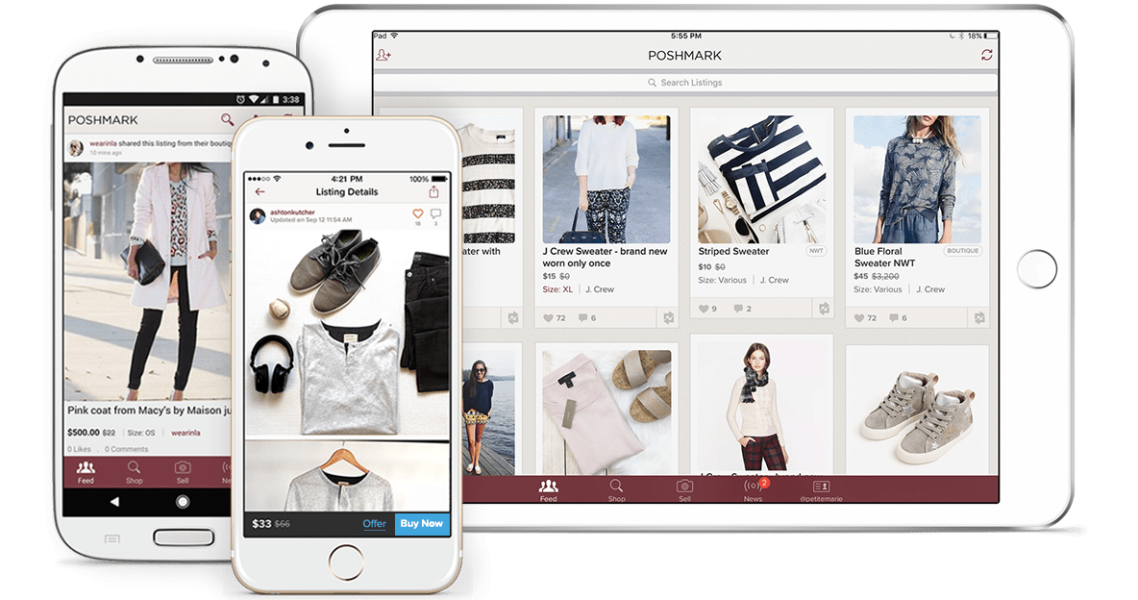One of the more promising applications for AI in fashion is in resale. As such, the technology could be instrumental in fueling a more circular economy.
In January, South Korean company Naver, an AI-powered search engine company, acquired U.S.-based fashion resale platform Poshmark for $1.2 billion. Now, Poshmark is bringing AI capabilities to its customer base to aid search and item recognition. According to Poshmark, one in three people in the U.S. have downloaded its app, and it had earned 100 million total users as of April 4, 2023. More than 200 million items have been bought and sold on Poshmark.
Poshmark launched its first AI product, Posh Lens, on July 19. It’s both an identifying and visual search tool to search styles similar to an image. Currently, 80 million items on Poshmark are compatible, or searchable, with Posh Lens. Sellers, meanwhile, can use the technology to simplify the product posting process, allowing them to recognize inventory faster and price it competitively.
Moving forward, Poshmark plans to also use AI to learn users’ style preferences and, subsequently, suggest editions of its live shopping “Posh Shows,” which the company launched last year. “In June, we had over 100,000 Posh Shows, [hosted] by tens of thousands of sellers on the platform, and the [feature’s tools] are still rolling out.”
“Our community, which [is fueled by] grassroots events and mentorship between sellers, has had more than 80 billion social interactions with each other,” said Manish Chandra, founder and CEO of Poshmark. Around 15-20% of items that are sold in a single user’s Posh Show come from other users.
Chandra said there are a multitude of uses for AI in resale, which Poshmark will leverage as the technology scales and develops. “AI is going to be very pivotal for resale,” he said. “If we can get to a point where your phone understands everything that is in your closet through a quick scan, plus understands you and the weather, and suggests what items to wear, then managing your clothes would be easier. And you could [more easily] resell the items you no longer want.”
Poshmark is currently looking at plans to expand to the Korean and Japanese markets, plus it’s exploring eventually providing AI assistants to sellers with many customers. “Ultimately, Poshmark is a community of many micro-communities, and we want to connect people within those micro-communities more effectively,” Chandra said.
Ad position: web_incontent_pos1
As for the rest of the resale world, companies like digital product startup EON are facilitating the use of NFC tags to make items more easily traceable when resold. The company teamed with Vestiaire Collective to launch EON’s instant resale program in January. Luxury brand Chloé is already using its ID technology. With the tech, users can automate their upload to a resale platform, similar to the way Poshmark’s AI cuts down the product loading process for sellers. Resale platform Goodwill Finds also leverages AI to sort and price products on its e-commerce site.
According to resale platform ThredUp’s latest impact report, released July 26, buying and wearing secondhand clothing versus new clothing reduces carbon emissions by an average of 25%, energy usage by 22% and water usage by 31%.




